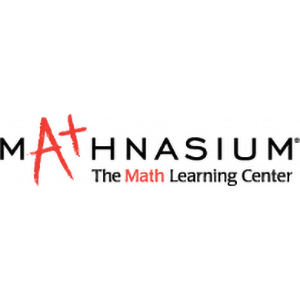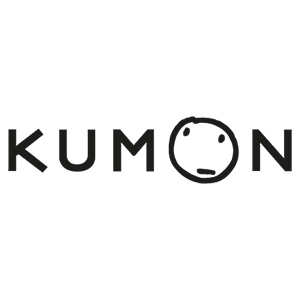Mathnasium Franchise in 2025: Costs, Fee & FDD
Explore the Mathnasium franchise opportunity: uncover costs, fees, and potential profitability. Learn how this innovative math tutoring brand, with over 1,000 global locations, supports franchisees in a growing market. Discover why Mathnasium might be your next franchise investment!
Table of Contents:
Mathnasium, founded by Larry Martinek in 2002, is a prominent name in the education and tutoring industry, specifically focusing on math instruction. Martinek, an experienced educator and math enthusiast, developed the Mathnasium Method to address common gaps in math education and foster a love for the subject. This innovative approach has positioned Mathnasium as a significant player in the tutoring franchise space, known for its effective and engaging math tutoring programs.
The core service of Mathnasium is its math tutoring program, which is designed for students from elementary to high school. The Mathnasium Method, a proprietary teaching approach, focuses on building a deep understanding of math concepts rather than rote memorization. The franchise offers personalized learning plans, one-on-one instruction, and a supportive environment to help students improve their math skills. The primary market served by Mathnasium includes parents and students seeking to enhance math performance, fill educational gaps, and build confidence in the subject.
As of now, Mathnasium has expanded significantly with over 1,000 locations across more than 20 countries, including the United States, Canada, the United Kingdom, and beyond. The franchise serves thousands of students daily, providing a consistent and structured approach to math education. This broad reach highlights the scalability and effectiveness of the Mathnasium Method, making it a go-to choice for parents and students worldwide.
Mathnasium offers robust support to its franchisees, including comprehensive training programs, ongoing marketing support, and a proprietary operating system. New franchisees undergo an extensive training process covering the Mathnasium Method, business operations, and marketing strategies. Additionally, the franchise provides continuous support through regional meetings, annual conventions, and a dedicated franchise support team. These elements ensure that franchisees are well-equipped to deliver high-quality math instruction and run successful tutoring centers.
Mathnasium Franchise Insights
- In 2023, Mathnasium franchises saw gross sales of $304,252, reflecting an 11% increase from 2022, indicating strong and growing demand for their services.
- The franchise payback period is approximately 4.7 years, providing a reasonable timeline for recouping the initial investment, which ranges from $113K to $150K, making it a moderate investment in the education sector.
- Mathnasium’s unique selling point is its proprietary Mathnasium Method, which has been proven to improve students’ math skills and boost their confidence, setting it apart from other tutoring franchises.
- Additionally, Mathnasium’s global presence, with over 1,000 locations in more than 20 countries, underscores its widespread appeal and successful business model.
Mathnasium Franchise Key indicators
Growth YOY (%)
2%
vs industry 0%
Total U.S. Locations
972
3-year Failure Rate
10%
vs industry 10%
Total Investment
$113K-$150K
How much does it cost to open a Mathnasium franchise?
Understanding the potential investment size and capital requirements is crucial when considering opening a Mathnasium franchise. These financial commitments, including initial franchise fees, equipment costs, and ongoing operational expenses, impact the feasibility and profitability of the venture. Thoroughly evaluating these factors ensures that potential franchisees are prepared for the financial responsibilities and can make informed decisions about their ability to sustain and grow the business, ultimately contributing to long-term success.
Min & Max Investment
Opening a Mathnasium franchise involves several key costs, which are outlined in Item 7 of the Franchise Disclosure Document (FDD). you can see a breakdown of the costs to open a Mathnasium below from the most recent Item 7 below:
| Type of Expenditure | Minimum Investment | Maximum Investment |
|---|---|---|
| Initial Franchise Fee | $49,000 | $49,000 |
| Expenses While Training | $2,500 | $3,000 |
| Technology Fee | $186 | $1,116 |
| Rent (1st and last month’s rent) | $6,000 | $14,000 |
| Paint, Carpet and Tenant Improvements | $5,500 | $13,500 |
| Furniture, Signs, Equipment and Supplies | $10,000 | $17,000 |
| Insurance | $1,200 | $1,500 |
| Business License, Name Registration | $250 | $1,000 |
| Professional Services (Legal and/or Accounting) | $1,300 | $2,000 |
| Phone and Utilities | $500 | $1,000 |
| Video surveillance and related equipment | $500 | $2,500 |
| Pre-Open Advertising | $4,000 | $4,000 |
| Additional Funds (4 Months) | $32,000 | $40,000 |
| Total | $112,936 | $149,616 |
Item 7 in the Franchise Disclosure Document (FDD) is the “Estimated Initial Investment” section. It outlines the total costs a franchisee can expect to incur when starting a franchise, including the initial franchise fee, equipment, inventory, real estate, and other startup expenses. This section is crucial because it provides potential franchisees with a detailed understanding of the financial commitment required, helping them assess affordability and plan their investment strategy effectively.
Required Capital
To open a Mathnasium franchise, the required capital involves both the initial investment costs and financial requirements set by Mathnasium. Let’s take a closer look below:
- Initial Investment The total estimated initial investment ranges from $113,000 to $150,000. This includes startup costs such as the franchise fee, real estate, construction, equipment, initial inventory, and additional funds for initial operating expenses. Assuming you can receive financing, you should plan to have at least 20% of the total investment in the form of equity (cash) ready to invest.
- Liquid Assets Requirement Mathnasium typically requires franchisees to have liquid assets of around $50,000 to $100,000. This ensures that the franchisee has sufficient funds to cover unforeseen expenses and maintain financial stability during the startup phase.
- Net Worth Requirement Mathnasium also assesses the overall net worth of the franchisee. While specific requirements can vary, it is generally recommended that franchisees have a net worth of approximately $150,000 to $250,000, which includes the value of assets like real estate, investments, and personal property, minus any liabilities.
How much does a Mathnasium franchise owner make?
Calculating the salary of a Mathnasium franchise owner involves analyzing gross sales to determine total revenue, assessing operational efficiency to understand profit margins, and accounting for franchisor fees and additional expenses such as rent, utilities, and payroll. Effective management of these factors can significantly impact the profitability and financial success of a Mathnasium franchise owner. This comprehensive financial analysis helps estimate net profits, from which the owner’s salary can be derived. A clear understanding of these factors ensures accurate salary projections and financial planning for sustainable business operations.
Mathnasium Revenue & Gross Sales
In 2023, Mathnasium franchises achieved a median gross sales of $304,252, reflecting an 11% increase from the previous year. This strong financial performance underscores the brand’s robust consumer demand and potential for lucrative returns for franchisees.
Which key factors impact the average revenue performance of Mathnasium franchisees?
The growth in U.S. franchisee median gross sales revenue for Mathnasium from 2022 to 2023 can be attributed to several key factors. The increasing recognition of the importance of STEM education has likely driven more parents to invest in quality math tutoring for their children. Additionally, the Mathnasium Method’s proven success in improving student performance and confidence has bolstered the franchise’s reputation, attracting more customers. The pandemic’s impact on education may have also played a role, as many students faced learning gaps due to remote schooling, leading parents to seek supplemental educational support. Finally, Mathnasium’s robust support system for franchisees, including comprehensive training and marketing strategies, has likely contributed to the consistent performance and growth of its locations.
Mathnasium Franchise Operational Costs
When opening a Mathnasium franchise, it is crucial to consider several key primary ongoing operational costs to ensure smooth and profitable operations. These costs include:
- Labor Salaries and wages for instructors and administrative staff, including payroll taxes and benefits.
- Rent Lease payments for the tutoring center location, which can vary based on location and size.
- Utilities Expenses for electricity, water, heating, internet services, and other essential utilities.
- Maintenance Regular upkeep and repairs of the facility and equipment to ensure a safe and welcoming environment.
- Supplies Educational materials, office supplies, instructional aids, and other necessary items for day-to-day operations.
- Marketing Ongoing advertising, promotional activities, and community outreach to attract and retain students.
- Royalty Fees Regular payments to Mathnasium for the use of their brand, curriculum, and support services.
- Insurance Coverage for liability, property, worker’s compensation, and other necessary insurance policies.
- Technology Costs for software, computer systems, online learning platforms, and technology upgrades.
Considering these ongoing operational costs is crucial for budgeting and financial planning when opening a Mathnasium franchise.
Mathnasium Franchise Fees
When considering a Mathnasium franchise, it’s important to be aware of the ongoing fees involved to ensure you can maintain financial stability and compliance. Here are the key ongoing fees you need to know:
- Monthly Royalty Fee Initially, 10% of your monthly gross receipts from all sources related to operating your center. Starting in the 24th month of operation, this fee will be the greater of 10% of monthly gross receipts or $1,500, payable monthly on the 20th of the following month.
- Base Royalty Fee $650 per month, with an additional $650 per month following each Base Royalty Acquisition, payable monthly.
- Monthly Marketing Fee $250 plus 2% of your monthly gross receipts, payable on the 20th of the following month. This fee supports ongoing marketing efforts to attract and retain students.
- Digital and Local Marketing Fee A minimum of $1,000 per month, payable on the 10th of each month. This fee contributes to the Centralized Digital and Local Marketing Program and helps ensure your center is promoted effectively.
- Technology License Fee $186 per month per Mathnasium center, payable on the 20th of each month. This fee covers the cost of essential technology and software used in operations.
- Annual Convention Fee Currently $400 per attendee, payable annually, typically in May. This fee covers participation in Mathnasium’s annual convention, which provides valuable training and networking opportunities.
- Administrative Fee for Late Payment $100 every two weeks until the payment is made. This fee is charged if you are late on payments due to Mathnasium, beginning on the first day after the payment is due and recurring every two weeks thereafter.
Understanding these ongoing fees is crucial for planning and managing your Mathnasium franchise effectively. These costs ensure that you receive the necessary support and resources to run a successful and compliant tutoring center.
Mathnasium Franchise Earnings
Mathnasium franchises have shown consistent growth in gross sales and earnings over the past few years. In 2023, the median gross sales for a Mathnasium franchise were $304,252, reflecting an 11% year-over-year increase from 2022. Owner-operators earned an estimated $45,638, while semi-absentee owners earned approximately $36,510, both marking an 11% growth from the previous year.
In 2022, median gross sales were $273,274, up 16% from 2021. Owner-operators earned around $40,991, and semi-absentee owners earned $32,793, showing a 16% increase from the previous year. These figures highlight the that a Mathnasium Franchise provides stable and consistent financial growth and earning potential for Mathnasium franchisees.
How to Open a Mathnasium Franchise
- Initial Inquiry You or your franchise specialist submits an initial inquiry basic information about your interest and background. You should also conduct thorough research on the franchise, including seeing all of the information available on the Vetted Biz franchise intelligence platform, including access to the most recent Franchise Disclosure Document (FDD).
- Initial Contact A Mathnasium representative will reach out to discuss your interest, answer preliminary questions, and provide an overview of the franchise opportunity. You may be asked to fill out a detailed application to assess your qualifications and financial standing.
- Franchise Disclosure Document (FDD) If you meet the initial criteria, you will receive the Franchise Disclosure Document (FDD) which contains detailed information about the franchise, including costs, fees, and obligations. Review the FDD carefully and consult with legal and financial advisors if necessary.
- Financial Review Submit your financial information for review to ensure you meet the financial requirements, including liquid assets and net worth. Mathnasium will evaluate your financial capability to support and sustain the franchise operations.
- Discovery Day Attend a Discovery Day at Mathnasium’s headquarters. This event allows you to meet the corporate team, learn more about the business model, and ask detailed questions. This is also an opportunity for Mathnasium to evaluate you as a potential franchisee.
- Interview and Approval Participate in a formal interview process with Mathnasium executives. If both parties agree to proceed, you will receive formal approval to become a Mathnasium franchisee. Sign the Franchise Agreement and pay the initial franchise fee of $49,000.
- Initial Training Participate in an extensive initial training program covering the Mathnasium Method, business operations, marketing strategies, and more. Training is typically held at Mathnasium’s headquarters and may include both classroom and hands-on instruction.
- Location Development Work with Mathnasium’s real estate team to select an appropriate location for your center. Negotiate and sign a lease agreement for your chosen site. Begin the process of setting up your center, including renovations, purchasing equipment, and obtaining necessary permits.
- Pre-Opening Marketing Implement a marketing plan to generate interest and enroll students before your center officially opens. Utilize Mathnasium’s marketing resources and support to promote your center within the community.
- Staff Hiring and Training Hire and train instructors and administrative staff to ensure your team is ready for opening day. Utilize Mathnasium’s training programs to ensure staff are well-versed in the Mathnasium Method.
- Opening Support Plan and execute a grand opening event to officially launch your Mathnasium center. Continue marketing efforts to attract students and establish your center in the community. Receive continuous support from Mathnasium, including regular training updates, marketing assistance, and operational guidance.
By following these steps, you’ll be well-equipped to open and operate a successful Mathnasium franchise, providing valuable educational services to your community.
Pros & Cons
Pros
Established Brand: Mathnasium is a well-recognized and respected brand in the education industry, providing instant credibility and trust with parents and students.
Proven Business Model: With a successful track record and a structured operational system, franchisees benefit from a tried-and-true business model.
Growing Market: The demand for supplemental education and tutoring services continues to grow, offering significant market opportunities.
Exclusive Territory: Franchisees are granted an exclusive territory, reducing competition from other Mathnasium centers in the immediate area.
Impactful Work: Running a Mathnasium center allows you to make a positive impact on children’s education and development, which can be personally rewarding.
Cons
Initial Investment: The initial investment can be substantial, with costs ranging from $113,000 to $150,000, which may be a barrier for some potential franchisees.
Ongoing Fees: Franchisees must pay ongoing fees, including a monthly royalty fee of 10% of gross receipts and marketing fees, which can impact profitability.
Operational Challenges: Managing a tutoring center requires strong operational skills, including staff management, marketing, and customer service, which can be demanding.
Dependency on Enrollment: Success is closely tied to student enrollment numbers, making it crucial to continuously attract and retain students.
Considering these pros and cons can help you make an informed decision about whether a Mathnasium franchise aligns with your personal and financial goals.




